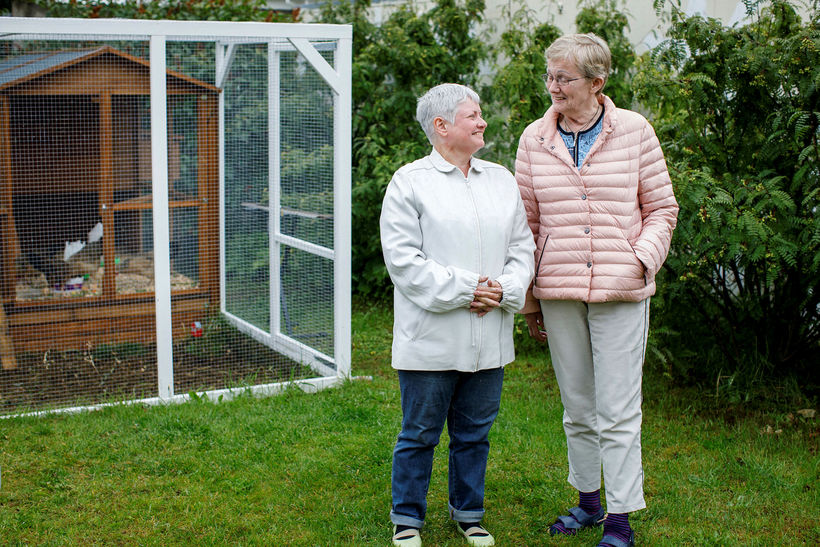‘Completely exhausted’ waiting for solutions
Auður Bárðardóttir and Anna Karlsdóttir are Alzheimer's patients, pleased with the daytime training program they attend at Fríðuhús. mbl.is/Hari
A lack of solutions in the Icelandic health care system for people with dementia is causing patients and their families unnecessary stress and limiting their quality of life, according to Morgunblaðið.
“Adults are in the role of caregivers around the clock, and the staff of the Alzheimer’s Association is oftentimes moved to tears by the accounts of family members, who are completely exhausted,” states Vilborg Gunnarsdóttir, CEO of the association.
In the metropolitan area alone, 179 patients are waitlisted for daytime training programs, reports Margrét Albertsdóttir, social worker at Landakot. At times, she states, the waiting list has included 200 people. The area can serve 168 people full-time, but it is common for patients to attend part of the week, making it possible to serve more people. There are eight specialized daytime training facilities for people with dementia in the metropolitan, one in Selfoss, South Iceland, and smaller ones in Reykjanesbær, Southwest Iceland, and in Akureyri, in the north.
On average, patients spend two years in daytime training programs. The most urgent need for care is in Garðabær, Kópavogur and Hafnarfjörður. Patients can spend up to 15 months on a waiting list, according to Vilborg.
The situation improved somewhat in 2015, when a facility opened in the eastern part of Reykjavík. Unfortunately, only three of the eight facilities in the metropolitan area have wheelchair access, making it impossible for many to accept care where stairs must be climbed.
Family members stress the importance of getting relief from caregiving. Sigurður Helgi Jóhannson states that his wife can’t wait to be accepted to such a program, and her stay there will give him the rest he needs to be able to care for her when she comes home.
Ragnheiður Kristín Karlsdóttir relates that in the daytime training program, her husband is occupied, and the training makes his life easier. He was diagnosed when the couple was ready to enjoy life in retirement. Patients interviewed, who already attend a training program, report being much happier since they were admitted.
Based on population forecasts, it is likely that the number of people in the population with dementia will rise rapidly in the future.


/frimg/1/57/87/1578747.jpg)





